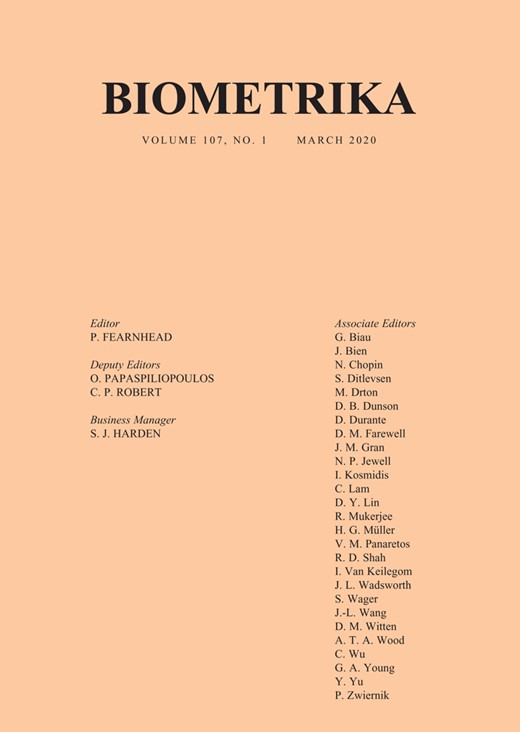-
Views
-
Cite
Cite
Z Tan, Regularized calibrated estimation of propensity scores with model misspecification and high-dimensional data, Biometrika, Volume 107, Issue 1, March 2020, Pages 137–158, https://doi.org/10.1093/biomet/asz059
Close - Share Icon Share
Summary
Propensity scores are widely used with inverse probability weighting to estimate treatment effects in observational studies. We study calibrated estimation as an alternative to maximum likelihood estimation for fitting logistic propensity score models. We show that, with possible model misspecification, minimizing the expected calibration loss underlying the calibrated estimators involves reducing both the expected likelihood loss and a measure of relative errors between the limiting and true propensity scores, which governs the mean squared errors of inverse probability weighted estimators. Furthermore, we derive a regularized calibrated estimator by minimizing the calibration loss with a lasso penalty. We develop a Fisher scoring descent algorithm for computing the proposed estimator and provide a high-dimensional analysis of the resulting inverse probability weighted estimators, leveraging the control of relative errors of propensity scores for calibrated estimation. We present a simulation study and an empirical application to demonstrate the advantages of the proposed methods over maximum likelihood and its regularization. The methods are implemented in the R package RCAL.



